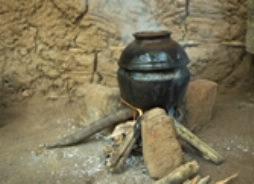FOR IMMEDIATE RELEASE
ACS News Service Weekly PressPac: June 12, 2013
Progress in introducing cleaner cook stoves for billions of people worldwide
“Cleaner Cooking Solutions to Achieve Health, Climate, and Economic Cobenefits”
Environmental Science & Technology
It may be the 21st century, but nearly half the world’s population still cooks and heats with open fires or primitive stoves that burn wood, animal dung, charcoal and other polluting solid fuels. The article in the ACS journal Environmental Science & Technology describes impressive progress being made to remedy that situation and the obstacles that remain.
Susan C. Anenberg and colleagues describe the health and environmental consequences of those old-fashioned energy sources. They include an estimated 4 million deaths annually from inhalation of soot and other material in the smoke, and air pollution that contributes to global warming. Reliance on wood and charcoal also contributes to deforestation and other problems. In a broadly based response, scientists, international aid agencies and governments have launched efforts to develop and introduce cleaner, more efficient cook stoves that may improve health and livelihoods and reduce climate emissions.
The article describes efforts to introduce millions of cleaner stoves into developing countries and to better understand the resulting benefits. Some new stoves, for instance, can cut fuel use by 30-60 percent, while reducing air pollution exposure and climate-warming pollution. It also discusses the importance of evaluating stove performance for a variety of policy goals and of ensuring that the new stoves are acceptable and affordable to users.
![]()
Contact
Science Inquiries: Michael Woods, Editor, 202-872-6293
General Inquiries: Michael Bernstein, 202-872-6042

primitive stoves that burn wood, animal dung,
charcoal and other pollutants, but millions of
cleaner and safer models are appearing in
developing countries.

